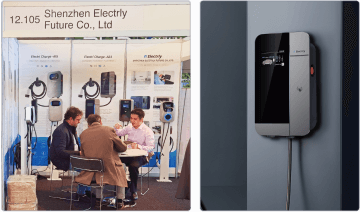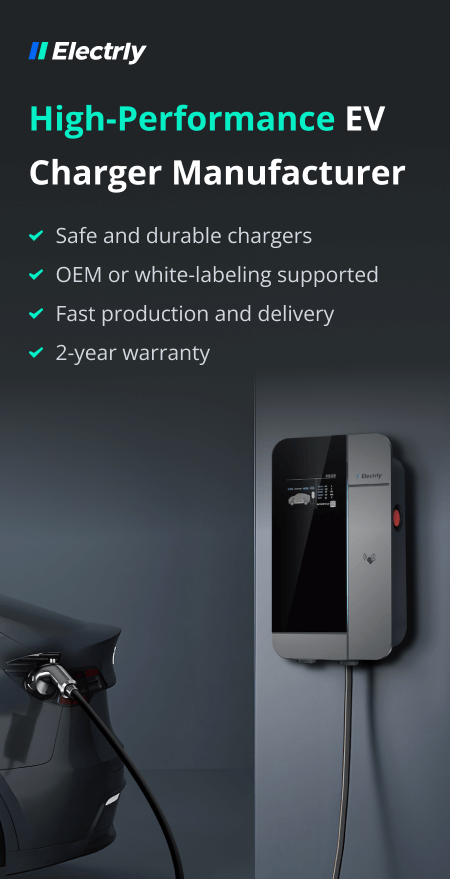The Nissan Leaf is one of the oldest and most popular entry-level options in the EV market. With the 2023 Nissan Leaf starting at a low-entry price of just over $28,000 (and as low as just over $20k after potential EV tax credit), the Leaf is one of the most affordable EVs available to this day.
Today with the help this expertly crafted article from Electrly, we’ll be going over one of the most considered factors when deciding on which EV is the right choice, that is, how long exactly it takes to fully charge a Nissan Leaf. This article will also cover the factors that affect its charging time and the cost of charging a Nissan Leaf.
What Are the Factors That Affect the Nissan Leaf’s Charging Time?
The EV Battery Pack
The primary factor that may affect an EV’s charging time is its battery size. The 2023 Nissan Leaf comes in two different trims: the S, and SV PLUS, which feature different batteries. The S comes equipped with a 40 kWh battery, while the SV PLUS features a 60 kWh battery. The bigger the battery pack is, the longer it takes to fully charge.
Charging power delivery
Another big factor that affects charging time is the power delivery used while charging. There are generally three types of chargers, with each being known as Level 1, Level 2, and Level 3 charging respectively, with Level 1 being the slowest, and Level 3 being the fastest.
Charging station setup
The charging station setup, which mainly occurs in public charging stations, will also have an impact on how long it takes to charge your Nissan Leaf. Due to necessary safety requirements and power management reasons, most public charging stations now apply the “shared voltage” setup.
This kind of charging setup limits the total power delivery to a certain threshold, meaning that the charging power may slow down when another vehicle is charging simultaneously using the same power supply unit, resulting in longer charging times.
How Long Does It Take To Fully Charge My 2023 Nissan Leaf?
Here’s the average charge time that it takes to charge the two 2023 Nissan Leaf models with a 40 kWh and 60 kWh battery pack respectively on various EV charging levels.
Level 1
The come-with-the-vehicle Level 1 charger is very slow and only provides roughly 3-5 miles of range per hour of charging. The S trim can be fully charged from 0-100% in 11 hours. Meanwhile, the SV PLUS trim will take nearly 20 hours to charge fully.
Level 2
Level 2 chargers are much faster, delivering charging power anywhere from 7 kW to 22 kW, depending on the charger’s amperage. The Nissa Leaf S can charge from 0% to 100% in around 7.5 hours while the Nissa Leaf SV PLUS takes 11 hours to charge fully.
Level 3
Of course, Level 1 and Level 2 charging speeds pale in comparison to Level 3 chargers. However, the Nissan Leaf S can only take DC charging up to 50 kW, and it will take around 50 minutes to fully charge.
The SV PLUS trim, on the other hand, can accept DC fast charging with a maximum power delivery of 150 kW through the CHAdeMo socket, meaning that it will only take as fast as 24 minutes to charge its 60 kWh battery pack from empty to full.
How Much Does It Cost to Charge My Nissan Leaf?
Charging a Nissan Leaf will depend on the method that you use for charging it, and there are also several different costs associated with charging including charging at home, installing a charging device, and charging publicly. Here are the specifics regarding charging costs:
Charging device installation
In order to charge your Nissan Leaf at home via Level 2 charging, you’ll first need to purchase a home charging device. You’ll also need to pay a professional electrician to perform the installation. The overall cost can easily go over $2,000 considering the equipment itself as well as the material and labor involved.
Residential charging costs
Charging at home is usually cheaper than charging at public charging stations, and also more convenient. Considering the average electricity rates in the US currently at 16 cents per kWh, it will roughly cost you $6.4 for a 40 kWh battery and $9.6 for a 60 kWh battery.
Public charging costs
While public charging costs are typically a bit higher than charging at home, costs are still fairly low. Take ChargePoint, one of the biggest public charging networks, as an example. It would roughly cost $7.34 to charge a Leaf S and $10.45 to charge a Leaf SV PLUS. The price may vary depending on the charging stations, locations, and charging levels on site.
Will Level 3 Fast Charging Affect the Battery Life of My Nissan Leaf?
While it is true that fast charging a Nissan Leaf or any other EV can cause battery degradation, it likely only will affect the battery life of your electric vehicle minimally, as most drivers do not use fast charging as the primary means for charging the vehicle’s battery. If only fast charged occasionally, your Nissan Leaf shouldn’t have major battery degradation.
FAQs
Which charging connector does the Nissan Leaf support?
The Nissa Leaf is no different than most other EVs on the market in the US. The Nissan Leaf S trim uses the J1772 Type 1 AC charger connector for Level 2 charging. The SV PLUS trim has an additional CHAdeMO plug for Level 3 charging.
How to determine which charging setup is best for my Nissan Leaf?
With so many different charging cable setups out there, finding the absolute best charging solution for your Nissan Leaf might feel hard. Out of the different charging setup configurations available, here are the pros and cons of each respectively.
- Portable Solution - Level 1 charging is honestly too slow to charge one’s car for any practical cases, except in the case of an emergency or if you happen to be traveling with no other means to charge. Thus, it is still a good idea to have a Level 1 portable charger stored in your vehicle.
- Household/Residential - The Level 2 charging station is an excellent option for EV home charging, as it’s more convenient than Level 3 charging and faster than Level 1 charging. Charging your Nissan Leaf at home while you are asleep also allows you to enjoy cheaper electric rates during nighttime.
- Public Charging Stations - If installing a home EV charger is not an option for you or you just simply don’t have time to charge at home, then utilizing a public charging station at your workplace or university parking might be the best option for you.
What is the range of a fully charged 2023 Nissan Leaf?
The 2023 Nissan Leaf S trim comes equipped with a 40 kWh battery, which has an EPA range of up to 149 miles. The more expensive model, the SV PLUS, has a 60 kWh battery which has an EPA range of up to 212 miles when fully charged.


